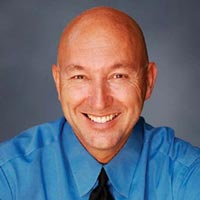Episode #337: How to develop an effective blueprint to achieve the practice results you deserve
Listen Now
Podcast: Play in new window | Download
Subscribe: RSS
The permission statement is a really cool way to introduce comprehensive dentistry to your patients. It’s truly a game-changer!
In this episode, Gary and Naren discuss the permission statement and how it allows you to introduce the concept and involve the patient, in a conversation about their oral health.
Gary:
Welcome to another episode of the Less Insurance Dependence podcast, I am Gary Takacs your podcast cohost along with my great friend Naren Arulrajah. Hey Naren, how are you?
Naren:
Hey, Gary, I am doing great, I am just enjoying the few months of summer that we have in the city of Toronto.
Gary:
You are enjoying it and we are ready to turn summer off! *laughs* Naren we are so not- it has been a record heat summer for us – July, the month of July has the hottest month, in the history of Phoenix Arizona *laughs*
Naren: Wow
Gary:
So I think it is time to turn the corner of this so kind of looking forward to some reasonable temperature for sure. Hey Naren our topic for this week is a really cool topic, we are going to talk about The Permission Statement and this is going to make a lot of sense as we go through this episode, but before I get to that one I want to make an announcement about our upcoming MBA thriving dentist live stream workshop – this is on Friday, September 11th, all day it is an eight-hour workshop. It is from 10 am eastern time to 7 PM – if you do the math that is actually 9 hours because we kind of give you a lunch/dinner break in there, and the workshop is all about the 10 elements of a thriving practice, and Hey Naren as you know one of those elements is guessed what?
Naren: Reducing Insurance Dependence!
Gary:
Reducing Insurance Dependence! And we go into a deep die about all the things you need to do to successfully reduce insurance dependence so that is covered in detail along with the 9 other elements that make up a thriving practice – hey so consider this an invitation to come to join us on September the 11th 10 AM to 7 PM Eastern time and that is 7 AM to 4 PM Pacific time. We will put a link in the show notes and by the way, there is some very attractive pricing now that we do theses as live stream we have much reduced expenses to put on these workshops so no air travel no meeting rooms no catering and we have cut the tuition to the bone and you will notice some very attractive pricing for you, so come join us and get a massive amount of CE and as well as everything you know, everything we know that will help you develop a thriving practice, and I also want to read a really fun review that we have received on iTunes for the Less Insurance Dependence podcast you know for those of you who have taken the time to write a review for us on iTunes – we want to take the time to say thank you. A review for us on iTunes is very much like a Google review for your practice let me read one to you;
‘What a perfect podcast with very valuable information – insurance is ruining the great profession of dentistry and these guys are saving it – must hear – 2 exclamation points’
Gary:
Thank you! I will not repeat the doctor’s name as we did not ask for his permission – but thank you and Naren I do not think I can say it any better when he said insurance is running the great profession of dentistry – and we are on a mission a grassroots mission to change that
Naren: Absolutely
Gary:
So thank you for that review. If you haven’t done it already if you could be kind enough to jump on iTunes and write us a review much appreciated – it would help more dentists find us and it will help us on our grassroots mission to save and preserve private practice dentistry. Hey, Naren this topic – The Permission Statement – I learned it many years ago and it is a game-changer.
Naren: Yes
Gary:
And I do not want to buy hype-y about it, it is not like there is some magic phrase that everybody is going to accept your treatment recommendations I truly wish we could bottle that if there was such a thing and sprinkle it over every practice in the country but it doesn’t work like that. What the permission statement is a really cool way to introduce the concept of comprehensive dentistry. Let’s face it – do you think comprehensive- the term comprehensive dentistry, do you think that is on the mind of the average dental patient?
Naren: No
Gary: No it is like, they think of it more as ‘I have a problem – fix it’
Naren: Right
Gary:
Right? So the language we use inside a dentistry which we would love our patients to you know experience as a comprehensive treatment plan and accept comprehensive dentistry – that is not a concept that is even bouncing around the mind of our patients
Naren: Correct
Gary:
It is more – just like I said, ‘I have this problem …’
Naren: ‘Fix it’
Gary:
‘I want you to fix it’ and what the permission statement does is to allow you to introduce the concept and invite them into a conversation about dentistry in a different way – you know that term invite you into a conversation is something our dear mutual friend – Dr. Leanne Brady
Naren: Yes
Gary:
And I want to give Lee credit for that because I first heard it from her and she may have heard it somewhere else but I want to give Lee credit for it I really think it properly describes what we are doing, and it is so intrusive
Naren:
Yes, and it is kind of linked to doctor Robert Cialdini most important principles of influence which are mindsets or you know commitment and consistency and stuff so when you ask for their permission and they say yes – now they are inviting you to help them and they are inviting you to tell them more and take them down that journey.
Gary: Can I be blunter about it Naren?
Naren: Yeah
Gary: You ask their permission and they say yes, if you do not do it is being rude!
Naren: Right *laughs* exactly
Gary: It is not giving them what they want
Naren: Want – right it flips the who equation to you preaching to them wanting it
Gary:
Now let’s just kind of – let’s do some fun little sidebar here and I guess we have to kind of think about this in the pre COVID world.
Naren: Yeah
Gary:
So back when we all used to go to restaurants you know all the time and you know we would enjoy our time at restaurants, and there will be a time again where that will happen but Naren can you imagine maybe you and your wife going to a restaurant and can you imagine the server at the restaurant, the waiter or waitress at the restaurant and this is someone who loves their job – and totally believes in the restaurant that he or she works for – they love it, and as they are sharing the menu imagine the waiter saying something like you, as you are looking at the menu let me take a minute to share with you one of my favorite appetizers from the menu? What are you going to say as a guest?
Naren: Absolutely!
Gary: Please!
Naren: Yes! *laughs*
Gary: Now you may have different- you may not act on it
Naren: Yeah
Gary:
You may have a different choice or different taste, you know that is on the appetizer menu but I think that would be a cool discussion – hey man can I share something with you that is one of my favorite appetizers on the menu
Naren:
Right right – I mean it comes from a different – as opposed to hearing the three specials you are asking for their permission and they want it now – they are saying yeah if it is one of your favorites I want to know, I am here like you know – I took the time to come here and I do not want to waste my time here having the wrong stuff tell me all the good stuff
Gary: And in fact, I would be the kind of person that would engage
Naren: Yeah
Gary: In what he would say – cool why do you like that one?
Naren: Yeah
Gary:
and he might say it is a seasonal appetizer it is not always on the menu, I want to make sure our guests know about it as it is not always on the menu
Naren: right
Gary: so I would say count me in, bring two of them
Gary:
but let’s go to the – let’s go back to the permission statement again – I have to set this up a little bit but I believe that our listeners will be on board – I am going to make the assumption that you are using the 6 digital photos for patient education, okay and now if you are new to the Less Insurance Dependence Podcast we are going to put a link in the show notes about the 6 photos for patient education so we will put a link in the show notes about that but I am going to assume that you are using the 6 digital photos for patient education and also part of that Naren one of the big details about that is that we show the photos on a laptop as opposed to showing them on a screen – now Naren I will put you on the spot – you can call a friend if you want but in case we have new listeners who have not heard that can you take a minute to summarize why we have them shown on a tablet and not upon a monitor.
Naren:
It is for the very same reason – because when there are no tablets they are engaging, they are playing with it they are looking at it and they go oh I see that coloring and I have to change it or that there is a gap in my teeth and it doesn’t look very nice, as opposed to it being on the big screen, I can’t engage, I can’t – it is kind of another way of asking questions – giving permission to you to answer those questions without giving them the Ipad they cannot engage –
Gary: It is passive on the screen
Naren: Yeah
Gary: I do not care how big the screen is
Naren: Yeah
Gary:
when of course now we have technology where you can get really big screens but it is still passive but as soon as we put the tablet – now I am an apple fanboy, I will declare it, my allegiance – it could be any tablet by the way I happen to like the apple products the iPods, the Ipad excuse me – I would recommend the Ipad pro because it is big – it has a twelve-point nine-inch diagonal screen and it is big – the bigger the screen real estate the better,
Naren: right
Gary: because now the patient can zoom in and they can see everything in micro detail but the simple reason is that when it is on the tablet – it converts it to an active process that engages – it becomes multi-sensorial for the patient to engage with
Naren: Right
Gary:
and they become much more engaged as opposed to the passive act of just watching or just looking at something on the screen –
Naren: Right
Gary:
So imagine now, the patient has the tablet in their lap and now remember there is one more detail, I am sharing this in case there are new listeners who have not heard the strategy behind the photos – we also make an excuse to leave the room and leave the tablet in the patient’s lap, it is a theatric move that is done intentionally and we will say something like – Naren if you were the patient, and Carly one of my new patient coordinators would say hey Naren remember when we, remember when I took the photos of you earlier today?
Naren: Yeah, yes
Gary:
have them with me and have uploaded them to the tablet – the tablet looks just like your smartphone if you want to see the next photos just take your finger and flick it and if you want to zoom in just take your fingers and kind of pinch on them to zoom into infinity. Now the doctor and I need to take a look at your digital x-rays – while we are doing that will you do me a favor and take a look at these photos? And make a mental note of any questions that you might have and when the doctor and I come back in the room we will be happy to go over any questions that you have. We will leave the room for 2 or 3 minutes. Now the psychology there Naren is that it is an important detail – the psychology there is that when the patient is left alone with the photos with nobody looking over their shoulder and with nobody being critical, of course, the intention is never to be critical of course but the patient might feel you know of course might feel that – so when the patient is left alone they could totally get into those photos.
Naren:
Yeah, autonomy –people are much more engaged when you give them some freedom to –
Gary:
Yeah I give them the freedom – you give them the freedom to do it and no imagine that Doctor Paul and doctor Tim come back in the room and the patient may have some questions – nowhere is the permission statement, now Naren I would like to go over those photos with you but before I do that as you and I are going over these photos do I have your permission to share with you absolutely everything is see?
Naren:
Absolutely – so you are asking for my permission and you keep your mouth shut
Gary:
And your specific question is ‘you and I are going over these photos do I have your permission’ and let me slightly change the wording here ‘do I have your permission to share every concern that I see’
Naren: Right
Gary:
do I have your permission to share every concern that I see’ now I do not think I have ever heard- I do not remember every hearing patients say no – oh no no no no if you see something please keep it a secret – would not want that
Gary:
I mean It is kind of silly if you think of it that way in fact sometimes the patient can even resist- if you have a patient who can be sarcastic or has a sense of humor, they would say well doc that is why I am here –
Naren: Right
Gary: Of course *laughs* which is really what you want him to say right?
Naren: Exactly
Gary:
And what do you think most people Naren just role play what do you think ninety-five percent of the time people say, Naren as you and I are going over these photos do I have your permission to share with you every concern I see – what do you think most people say
Naren:
So ninety-seven percent would say yes absolutely or some variation for that – absolutely a hundred percent
Gary:
and I think this solves the biggest decision matrix that dentists struggle with and let me put that on the listener’s screen – I think every dentist on the planet struggles with this – when do I promote just necessary treatment vs. the who enchilada
Naren: Meaning the ideal treatment?
Gary: Meaning ideal treatment
Naren: Right
Gary:
And I get it and I get the dilemma because you might think I know that they are here for this thing on the upper left but if I present comprehensive treatment am I going to blow them out of the water, you know it is either am I going to blow them away and have it be something they were in a position to hear
Naren: Right
Gary: And when you ask them their mission statement you have their permission now
Naren: Right
Gary: To be thorough and to be comprehensive
Naren:
Right let me ask you a question Gary just to make sure I got it – I have heard you mention this type of a concept not just in this context but in many other contexts I can think of examples where you have shared this with me, can you maybe – rapid-fire give us a couple of other, a few other examples where you could ask for permission, one example that comes to my mind is I did not feel that shot and you say thank you so much for sharing that with me I am repeating so why do you not repeat it
Gary:
Yeah so the context that you are using as an example there is when a patient is delivering a compliment
Naren: Right
Gary:
And it could be – one we hear a lot you know Paul and Tim all our hygienists in Arizona all hygienists can give an anesthetic and all our hygienists give a significant portion of shots in their practice and they are awesome – they are like as smooth as can be and you know we hear it all the time, the patient will turn to doctor Paul, ‘doctor Paul my goodness I never felt a thing – did you give me a shot? I never felt a thing’ and think about what the reaction is if you are not really intentional about what you are doing – what the natural reaction is to kind of stick your tail between your legs and say thanks
Naren: Right
Gary:
Instead of a bold response that is – Naren thank you so much for sharing that you just made my day
Naren: Right
Gary: Now that made my day – of course that is our goal – to make every visit as comfortable as and do not stop there
Naren: Exactly
Gary:
Keep going Naren – there are many people in phoenix who are afraid of going to the dentist because of the shot – would you do me a favor when you get a chance and write a Google review and you can say the same thing you said about me – about the shot and that is going to help more people overcome their fear by going to the dentist because now you have taken away the dragon – you have taken away the fear of the shot and you will be helping people get good oral health – thanks in advance.
Naren: Right
Gary: To remove an aversion
Naren:
Their permission, you are asking for their permission – you are not saying write a review you are just asking for their permission – would they do this?
Gary: Yeah
Naren:
Ninety-eight percent of the time they are going to say yes – that is the beautiful thing about the permission statement it is a question but really the answer is a yes I en you have tested it for about a thousand times
Gary:
Yes – Yeah I mean we will do a future Less Insurance Dependence podcast on the whole concept of the benefit statements
Naren: Mhmm
Gary: The benefit statements and I love benefit statements because it answers the question of why should I do this and a lot of time people – the high Ds on the DISC and the personality styles
Naren: Yeah
Gary: The high Ds might even ask you why should I do ti – but ninety percent of the people that are high Ds may not ask it but they might be thinking it so what was the benefit of the benefits statement in that example – the benefit was you are going to help people
Naren: Right
Gary: And we all want to help
Naren: Yeah
Gary:
You are going to help people overcome their fear but when you and your team really get onboard doctor with benefit statements you are going to see the figurative light bulb g off you know in a patient’s mind because now they know why they should do something
Naren:
And another example real quick – you have told me this – is sorties you have a certain an out of patient time for an appointment – let’s say you are coming in and checking on hygiene patient starts asking questions you start asking permission – do you mind if we set up 30 minutes to ask a question no charge -where we can really sit and discuss, can you give that verbiage can you-
Gary:
A lot of times this happens when you are going through photos it is a blessing and a curse and all of a sudden the patient is totally into their mouth because they have never seen their teeth before and they keep asking questions that are going down this rabbit hole and you can quickly see the train wreck of you know really messing up your time,
Naren: Schedule
Gary:
Schedule that day – so what I – I teach my clients to do this – figuratively call a time N– obviously we are not doing this but I like the thinking around this – figuratively call a time out, say something like Naren I wish all my patients were as interested in their mouth as you are about yours *laughs* you are such an amazing patient. I want to take the time to answer all of your questions so you have the information you need to amok the best decision about your health, I also want to be respectful of your time today – Naren we have you scheduled for 2 o clock and we are kind of fussy about being a long time office but I want to make sure we get you out of here at 2 o clock as promised but here is what I would like to do – I would like to – before we leave set up a follow up appointment – now we can actually, now this is where we have the fork in the road – in the old days before we had virtual consult, we used to bringing them back for a face to face consult – so that, we could still do that with Naren we have a cool way to do this with technology where we can do that ad follow up virtually and do that via a zoom call, I am sure you are familiar with that Naren – I know we can do that, so that is another example of you know that way to sort of you know direct permission and to basically give the patient what they ask for – but let’s go back to the specific verbal skills that they ask for on the permission statement – Naren as you and I are looking at these photos od I have you permission to identify every area of concern I see – and doctors watch that – watch the magic of that and watch your patients nod their head and say yes of course not – please do, an now you have solved the biggest dilemma of comprehensive vs. episodic recommednations
Right
And as you are making recommendations one of the things you could say – I love this, I would kind of put a ribbon on it with this – you could say and I in response in going over all these concerns I want you to know that whatever happens next is completely up to you – we can go as fast and as a sow, as you like – we could get started with the immediate concerns and face thigs in overtime or we could get you healthy as quickly as possible – notice what I said, it is kinda like I think I like that one.
Right
I like that one, I mean right? So it si a great way to combine that with a permission statement – well doc I want you to get comfortable with using that phrase if you, use the the photos the photos are a great way to make the patients see their teeth in a way that they have never seen them before and this has made a big difference not only in our practice but also in clients all over the country and of course this fits our topic so well – because when we present comprehensive dentistry so much of that is going to be about being outside of what is being covered by insurance because basically insurance is kind o meant for the tooth of the year club you know and now you are breaking outside of that and you know many people are going to be interested in moving quicker that the tooth of the year club because the insurance plan is sort of designed for that – well I am glad you have enjoyed his episode, practice it – Naren thanks for being my cohost and also thanks to you and your team at EKWA for all you do for us to generate new patients that allow us to sustain our new growth I our practice -we will put a link in the show notes for EKWA and if you have not already set up a free marketing strategy meeting with EKWA – I would encourage you to do that, you meet with Lila Stone – Lila is director of EKWA’s marketing that is normally a service they provide at a fee at a fee of nine undred dollar s howwver they have done, naren has been kind enough to offer that to our listeners at no cost we will put a link in the show notes to encourage you to shcedue thanks so much and I look forward to connecitn gwith you on the next less insuarance dependence podcast
 One of Gary's most significant achievements as a dental practice management coach is transforming his own practice, LifeSmiles, from one that was infected with PPO plans, no effective marketing strategy, and an overhead of 80% to a very successful dental practice that is currently one of the top-performing practices in the US.
One of Gary's most significant achievements as a dental practice management coach is transforming his own practice, LifeSmiles, from one that was infected with PPO plans, no effective marketing strategy, and an overhead of 80% to a very successful dental practice that is currently one of the top-performing practices in the US.
 As CEO of Ekwa Marketing, Naren has over a decade of experience working with dental practices and helping them attract the ideal type of patients to their practices. It is his goal to help dentists do more of the type of dentistry they love with the help and support of effective digital marketing.
As CEO of Ekwa Marketing, Naren has over a decade of experience working with dental practices and helping them attract the ideal type of patients to their practices. It is his goal to help dentists do more of the type of dentistry they love with the help and support of effective digital marketing.



